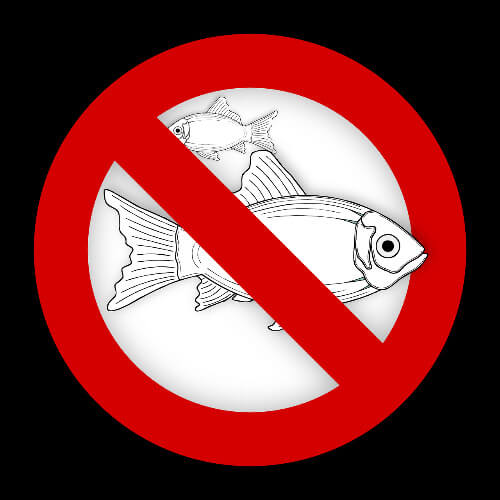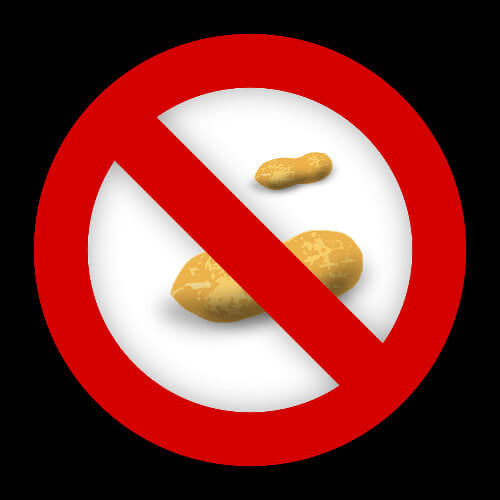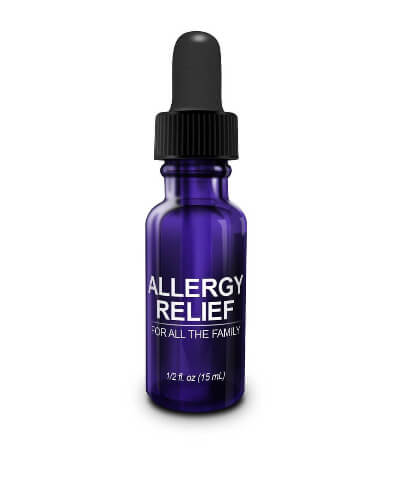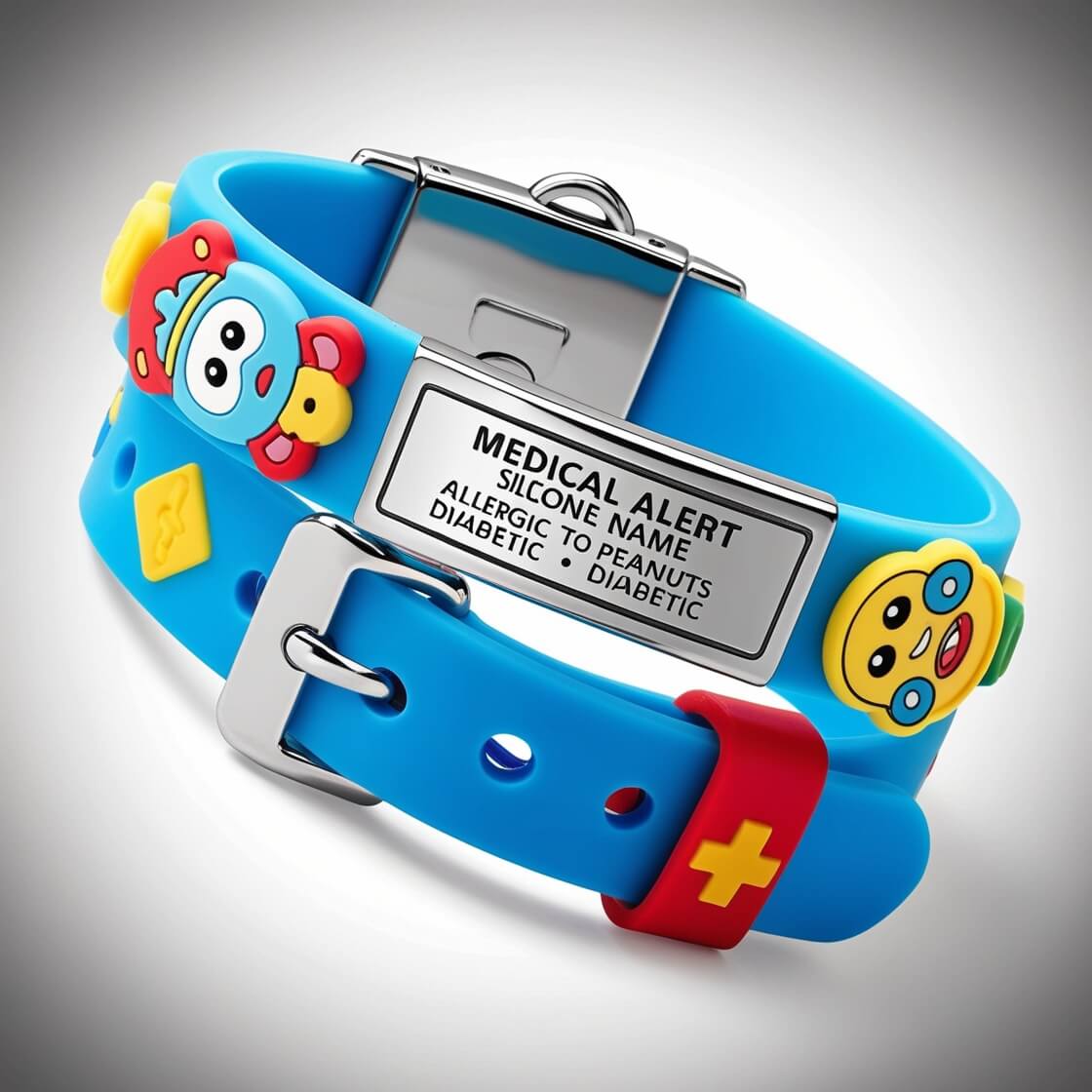Knowing the Signs of Food Allergies in Children
Food allergies can be a serious concern for many parents. When you know how to recognize the signs of food allergies as early as possible you can make a difference in your child’s health and happiness.
 Baby is in doctors office with mom on one side and doctor on the other. They are looking at baby and smiling.
Baby is in doctors office with mom on one side and doctor on the other. They are looking at baby and smiling.What Are Food Allergies?
Food allergies occur when the immune system mistakenly identifies a harmless food protein as a threat and attacks it.
An allergic reaction will then be triggered, which will range from mild to severe.
Children with food allergies can experience symptoms within minutes to a few hours after eating the allergen.
Common Food Allergies in Children
Before we discuss the signs of food allergies, it's helpful to know which foods are the most common culprits.
The top allergens in children include:
- Milk: Often the first allergen children encounter, especially if they are formula-fed.
- Eggs: Another common allergen that can appear early in life.
- Peanuts: Known for causing severe allergic reactions.
- Tree nuts: Includes almonds, walnuts, and cashews.
- Soy: Often found in processed foods.
- Wheat: A common ingredient in many children's diets.
- Fish and shellfish: More common in older children.
- Sesame: Increasingly recognized as a common allergen.
 Picture of a fish with a circle around it and a line threw the middle.
Picture of a fish with a circle around it and a line threw the middle.Recognizing the Signs of Food Allergies
Food allergy symptoms can vary widely from child to child and can affect multiple systems in the body.
Here are some common signs of food allergies to look out for:
Skin Reactions
One of the first and most noticeable signs of food allergies is a reaction on the skin.
- Hives: Raised, red, itchy welts on the skin.
- Eczema: Dry, itchy skin that can become red and inflamed. Children with eczema may notice their condition worsening after they eat certain foods.
- Swelling: Particularly around the face, lips, and eyes.
Gastrointestinal or Digestive Symptoms
The digestive system can also be affected, watch for these symptoms.
- Nausea and vomiting: A common reaction to an allergen.
- Diarrhea: Loose stools can indicate an allergic reaction.
- Abdominal pain: Complaints of stomach pain or discomfort.
Respiratory Issues
In some cases, problems with breathing can occur.
- Runny or stuffy nose: Allergic rhinitis can be a sign.
- Coughing and wheezing: These can indicate a more severe reaction.
- Shortness of breath: Medical attention is required immediately as this symptom is very serious.
 Picture of a peanut with a circle around it and a line threw the middle.
Picture of a peanut with a circle around it and a line threw the middle.A More Severe Reaction is Anaphylaxis:
Anaphylaxis is an extremely serious, life-threatening allergic reaction that requires immediate medical attention.
Symptoms can include:
- Difficulty breathing: Due to swelling of the airways.
- Rapid or weak pulse: Indicates cardiovascular distress.
- Loss of consciousness: A critical sign of severe reaction.
- Swelling of the tongue or throat: Can block airways and is very dangerous.
- Severe drop of blood pressure
If your child is experiencing a severe allergic reaction to something, call 911 or emergency services and administer your child’s epi-pen if available.
When Do Food Allergies Develop?
Anyone can get food allergies at any age, however, they develop most commonly in infants and young children.
Some children may outgrow their allergies, while others may have them for life. You must continue to monitor these allergies throughout their childhood.
Food Allergies - How to Know
Consult your pediatrician if you think your child may have food allergies. They may recommend:
- Skin prick tests: To identify specific allergens.
- Blood tests: To measure the immune system's response to certain foods.
- Oral food challenges: Conducted under medical supervision to confirm an allergy.
Managing Food Allergies
Once a food allergy is diagnosed, managing it involves avoiding the allergen and having an action plan in case of accidental exposure.
Here are some tips:
- Read labels carefully: Many allergens can hide in processed foods.
- Find allergy friendly foods: Look for products that cater to food allergies. Many companies offer allergy-free alternatives.
- Educate your child: Teach them to recognize and avoid their allergens. Make sure they know not to share food with others.
- Have emergency medications on hand: Keep antihistamines and an epinephrine auto-injector available.
- Communicate with caregivers: Ensure teachers, babysitters, and family members are aware of your child’s allergies and know how to respond in an emergency.
Emotional Impact of Food Allergies
Food allergies can be stressful for both children and parents.
If your child has allergies, they may feel different or isolated from their peers, especially in social settings like birthday parties or school.
However, this is a good time to show them love and find ways to make sure they can join in all the fun, safely!
 Bottle of allergy relief medicine. THIS IS NOT AN AD.
Bottle of allergy relief medicine. THIS IS NOT AN AD.Support and Resources
Joining a support group for parents of children with food allergies can provide valuable advice and emotional support.
Organizations like Food Allergy Research & Education (FARE) offer resources and community connections.
It’s important for their well-being, that you recognize the signs of food allergies. Stay informed on the topic and you will be helping your child to lead a healthy and happy life.
As always be sure to consult with healthcare professionals for personalized advice and treatment plans.
Remember, you are not alone in this journey—there are resources and communities ready to support you every step of the way.




















New! Comments
Have your say about what you just read! Leave me a comment in the box below.